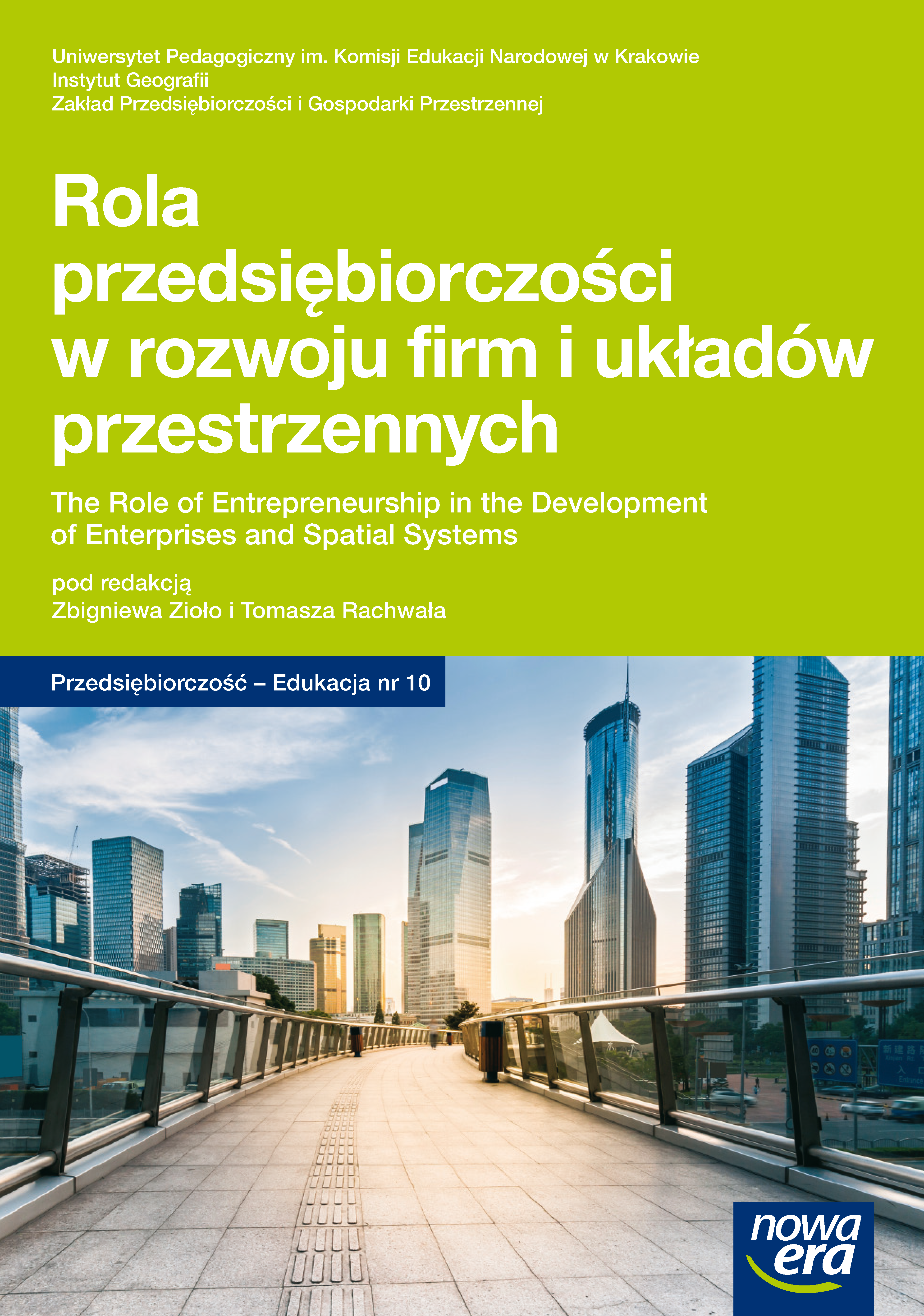Conditions of entrepreneurial intentions of students of economics universities in Poland and the Czech Republic
Keywords:
entrepreneurial intentions, perception of entrepreneurial potential, entrepreneurshipAbstract
This article presents the results of empirical research on entrepreneurial intentions, which are presentedin the context of selected personal characteristics of students of economic universities in twodifferent countries, Poland and the Czech Republic. The authors accept the idea that the entrepreneurial intentions of young people - with the existing state of knowledge - are related to their perceptionsof their "business potential". In this concept, the authors understand the selected psychological traits (a subjective evaluation by respondents), included in most business models. Recognizing that entrepreneurial behaviors are determined by a number of factors, it was assumed that the process of individual entrepreneurship begins both with perception and with a positive assessment of their abilities - the competence, skills and character traits.
References
Ajzen, I. (1991). The theory of planned behawior. Organizational Behavior and Human Decision Processes, vol. 50.
Bernat, T., Kordysa, J., Kunasz, M. (2008). Przedsiębiorczość studentów w wybranych krajach Europy Środkowo-Wschodniej. Szczecin: Wydawnictwo PRINT GROUP.
Bratnicki, M. (2002). Przedsiębiorczość i przedsiębiorcy współczesnych organizacji. Katowice: Wyd. AE.
Bygrave, W.D. (1989). The Entrepreneurship Paradigm: A Philosophical look at Its Research Metodologies. Entrepreneurship Theory and Practice, Fall, vol. 9.
Conner, M., Armitage, Ch.J. (1998). Extending the Theory of Planned Behavior: A Review and Avenues for Further. Research Journal of Applied Social Psychology, vol. 28, no 15.
Cuervo, A., Ribeiro, D., Roig, S. (ed.) (2007). Entrepreneurship, Concepts, Theory and Perspective. Berlin: Springer, Bancaja.
Davidsson, P., Wiklund, J. (2001). Levels of Analysis I Entrepreneurship Research: Current research Practice and Suggestion for the Future. Entrepreneurship: Theory & Practice, vol. 25, no 4.
Dyduch, W. (2008). Pomiar przedsiębiorczości organizacyjnej. Katowice: Wyd. AE.
Frączkiewicz-Wronka, A., Grewiński, M., (red.). (2012). Przedsiębiorczość w Polsce – bariery i perspektywy rozwoju. Warszawa: Agencja Reklamowo-Wydawnicza Arkadiusz Grzegorczyk.
Gartner, W.B. (1985). A Conceptual Framework for Describing the Phenomen of New Venture Creation. Academy of Management Review, vol. 10, no 4.
Jankowska, B., Pietrzykowski, M. (2012). Postawy proprzedsiębiorcze studentów a profil kształcenia – Polska na tle innych krajów. Przegląd Organizacji, 8.
Jünger, J. (2007). Management a podnikání. Ostrava: Ostravská univerzita, pozyskano z: http://albert.osu.cz/pvsos/.
Kraśnicka, T. (2002). Koncepcja rozwoju przedsiębiorczości ekonomicznej i pozaekonomicznej. Katowice: Wyd. AE.
Kraśnicka, T., Ludvik, L. (2003). Poglądy studentów w kwestii przedsiębiorczości w kontekście integracji europejskiej. W: H. Bieniok (red.), Przedsiębiorczość, konkurencyjność oraz kondycja małych i średnich przedsiębiorstw w obliczu integracji z Unią Europejską. Katowice: Wyd. AE.
Krueger, N.F. (2000). The Cognitive Infrastructure of Opportunities Emergence. Entrepreneurship: Theory & Practice, no 1.
Kunasz, M. (2008). Przedsiębiorczość studentów studiów dziennych – wyniki badań. Przegląd Organizacji, nr 1.
Kuratko, D.F., Hodgetts, R.M. (2001). Entrepreneurship. A contemporary approach. Fort Worth: Harcourt College Publishers, Fifth Edition.
Kuratko, D.F., Morris, M.H., Covin, J.G. (2011). Corporate Innovation & Entrepreneurship, SOUTH- -WESTERN CENGAGE Learning Australia, United States.
Linan, F., Chen, Y.W. (2009). Development and Cross-Cultural Application of a Specific Instrument to Measure Entrepreneurial Intention. Entrepreneurship Theory and Practice, May.
Moriano, J.A., Gorgievski, M., Laguna, M., Stephan, U., Zarafshani K. (2012). A Cross-Cultural Approach to Understanding Entrepreneurial Intention. Journal of Career Development, vol. 39, no 2, April.
Morris, M.H., Lewis, P.S., Sexton D.L. (1999). Reconceptualizing Entrepreneurship: An Input-Output Perspective. Advanced Management Journal, vol. 59.
Robbins, S.P. (2004). Zachowania w organizacji. Warszawa: PWE.
Stevenson, H.H., Jarillo-Mossi, J.C. (1986). Preserving Entrepreneurship as Companies Grow. Journal of Business Strategy, Summer, no 10.
Wickham, P.A. (2006). Strategic Entrepreneurship. London: FT Prentice Hall, Harlow, Fourth Edition.
Welpe, I.M., Spörrle, M., Grichnik, D., Michl, T., Audretsch, D.B. (2012). Emotions and Opportunities: The Interplay of Opportunity Evaluation, Fear, Joy, and Anger as Antecedent of Entrepreneurial Exploitation. Entrepreneurship: Theory & Practice, January.
Wu, C., McMullen, J.S., Neubert, M.J., Yi, X. (2008). The influence of leader regulatory focus on employee creativity. Journal of Business Venturing, vol. 23.
Zbierowski, P., Węcławska, D., Tarnawa A., Zadura-Lichota, P., Bratnicki, M. (2012). Global Entrepreneurship Monitor Polska – 2011. Warszawa: PARP.
Downloads
Published
How to Cite
Issue
Section
License
Articles are published under the terms of the Creative Commons License (CC BY-ND 4.0; Attribution– NoDerivs).

